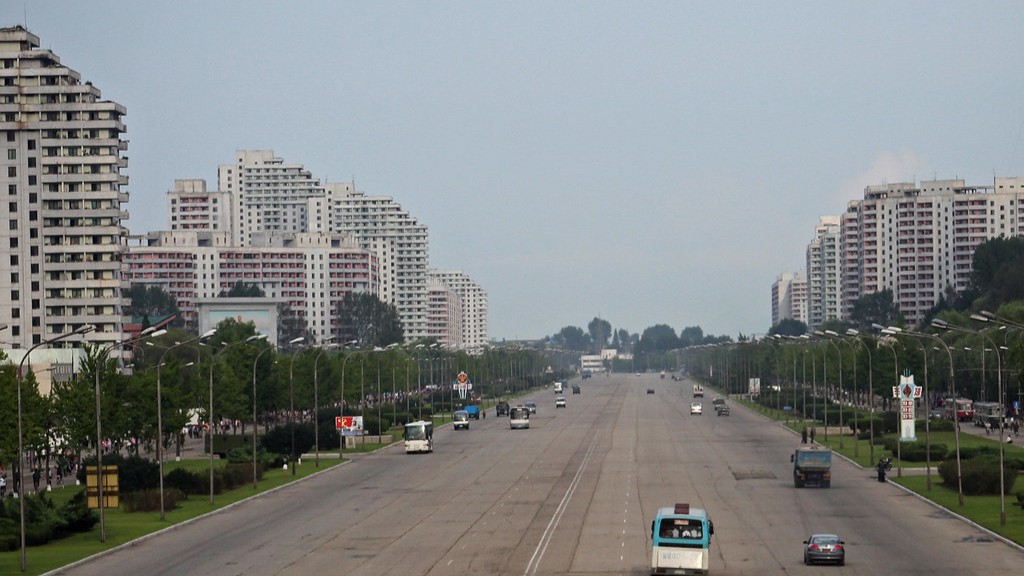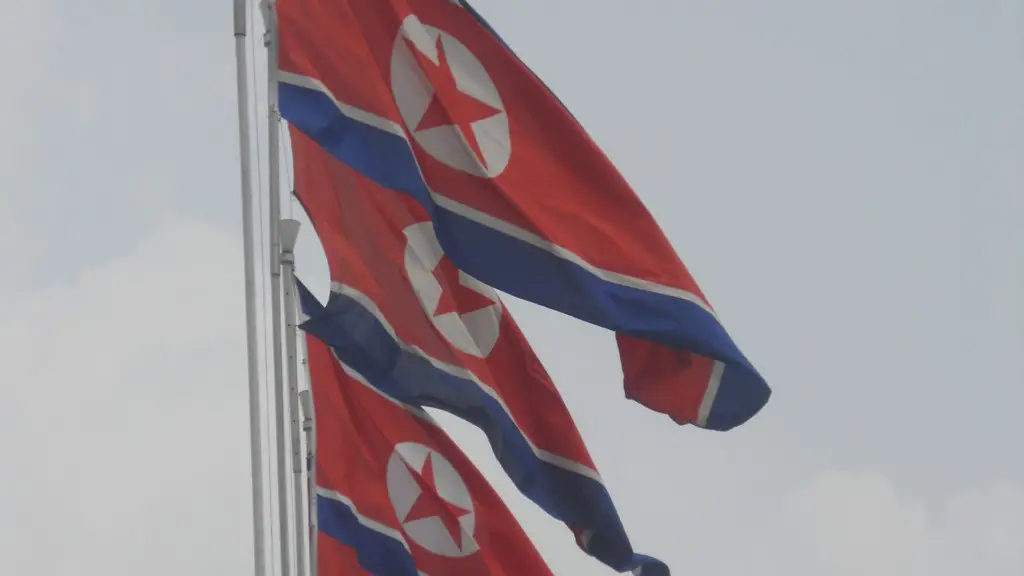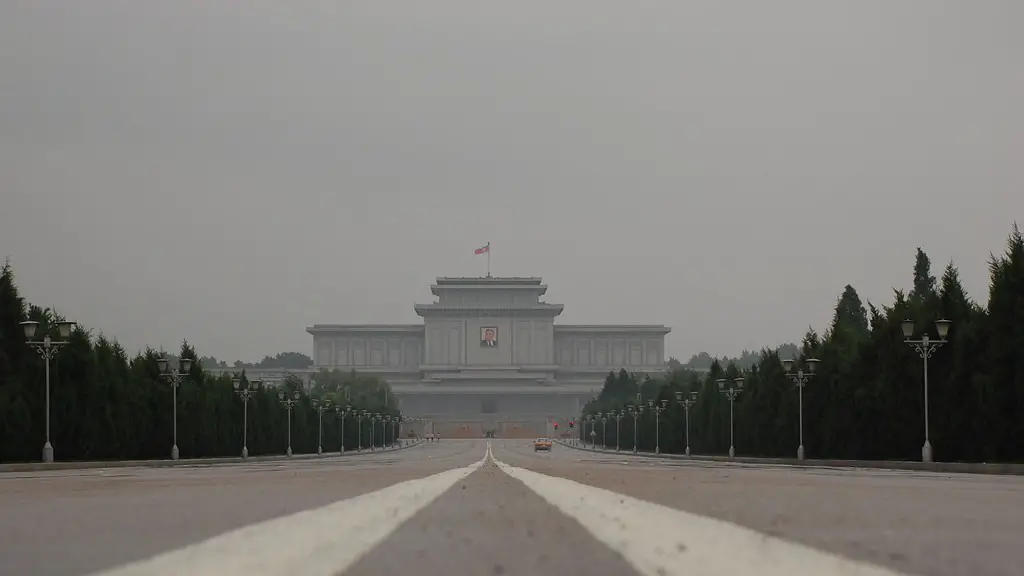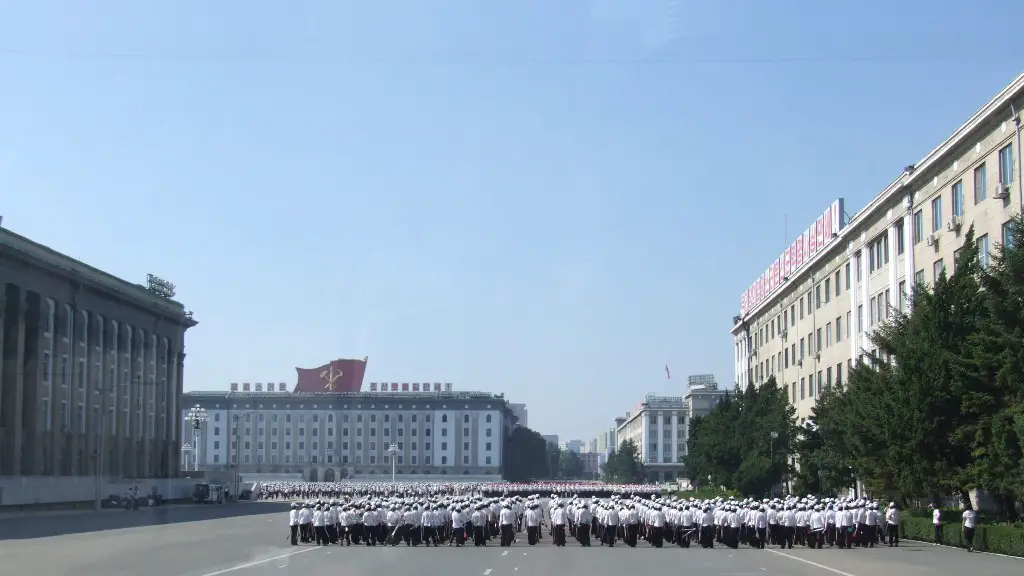Religious and Cultural Influence
Religion, culture, and traditional values have played a major role in North Korea. All the citizens of North Korea are expected to believe in the rule of the late leader Kim Il-Sung and, most important of all, the current leader, Kim Jong-un. This has made North Korea into one of the most autocratic and oppressive countries in the world. Religion is monitored and controlled by the government, with no room for dissent. Religion is seen as a threat to the government’s control, with punishments for those who practice it. As a result, North Koreans suffer from a lack of individual expression and freedom of religion.
Furthermore, North Korea has a large number of cultural and traditional values that are strictly enforced in order to control the population. Freedom of expression is almost non-existent in North Korea, as is freedom of the press. This limits the ability of citizens to express themselves and share their opinions.
In addition, North Koreans have been heavily influenced by their government’s ideology since the 1950s. They are taught to view the outside world with suspicion and fear, which has led to a mistrust of outside influences and a culture of obedience.
Economic Impact of Liberation
The liberation of North Korea would have a major economic impact. The country relies heavily on foreign aid and support. Without this help, it is likely that the country would face economic collapse, as the currency lacks international recognition and the economy is already in a fragile state.
Rumors have circulated that North Korea’s economy is on the brink of collapse, but the country has managed to stay afloat through economic assistance, such as the offers of money or food aid from the United Nations, or the resumption of China’s assistance. However, these offers could be withdrawn or suspended if North Korea begins to threaten the international community, or if it collapses economically.
If North Korea is liberated, it could be open to foreign investments, which would provide the country with a much-needed boost. This could create much-needed jobs and sources of income for the people of North Korea. In addition, it could also allow for the development of infrastructure and services that could help to improve the quality of life in North Korea.
Political Effects of Liberation
The liberation of North Korea would have significant political impacts both inside the country and around the world. North Korea is one of the most isolated countries in the world and has been a source of tension in the international community for decades. It has long been considered a threat to international peace and security.
If North Korea was liberated, it is likely that the country would become a more open and democratic nation. This could lead to a political transformation in the region and the end of authoritarian rule in North Korea. It could also lead to improved relations between North and South Korea, and improved international relations between North Korea and its neighbors.
The liberation of North Korea would also have political implications for the rest of the world. It could lead to the end of North Korea’s nuclear program and reduce the global threat of a nuclear war. It could also lead to improved relations between North Korea and the United States, which could lead to increased economic and diplomatic ties between the two countries.
International Repercussions of Liberation
The liberation of North Korea would have far-reaching implications for the rest of the world. It would signal a potential end to decades of isolation and could lead to increased diplomatic and economic ties between North Korea and the rest of the world.
The liberation of North Korea could also lead to increased economic cooperation and trade between North Korea and other countries. This could help to boost economic growth in the region and provide much-needed economic assistance to North Korea. It could also lead to a reduction in tensions between North Korea and its neighbors, as well as an end to the blockade of North Korea by the United States and its allies.
In addition, the liberation of North Korea could lead to a change in the international balance of power, as it would give the country a stronger voice in international affairs. This could also lead to increased diplomatic engagement with the region and increased economic cooperation between North Korea and other countries.
Social Implications of Liberation
The liberation of North Korea could have a huge impact on the lives of ordinary North Koreans. It could lead to improved social conditions, as citizens would be given the chance to lead more fulfilling lives. This could include increased civil liberties, such as freedom of expression, freedom of assembly, and freedom of the press.
In addition, the liberation of North Korea could lead to improved living conditions for ordinary citizens. This could include better access to healthcare and education, as well as improved access to basic necessities such as food and water. These changes could help to reduce poverty and suffering in North Korea.
The liberation of North Korea could also lead to increased access to the internet and other communication technologies, which could help to open up the country to the rest of the world. This could lead to a better understanding of the country, as well as increased economic and social opportunities.
Security Issues of Liberation
The liberation of North Korea could pose a number of security issues for the region. Pyongyang is believed to possess a large arsenal of weapons of mass destruction, including nuclear weapons. If these weapons were used outside North Korean borders, it could lead to increased threats to international security.
In addition, North Korea has historically been hostile to democratic governments, which could lead to increased tensions with countries in the region. It is also unclear how the North Korean government would respond to a regime change and whether it would attempt to launch a military offensive against neighboring countries or launch terrorist attacks.
Finally, the liberation of North Korea could lead to an influx of political refugees from the country, which could put a strain on the resources of other countries. In addition, it could lead to an influx of illegal weapons, drugs, and other contraband into the region.
Conclusion
The liberation of North Korea would have a major impact on the lives of ordinary North Koreans, as well as the region and the international community. It could lead to improved social, political, and economic conditions in North Korea, as well as improved relations between North Korea and its neighbors. However, it could also pose a number of security risks and lead to an influx of political refugees. As such, any attempt to liberate North Korea must be carefully considered and planned.




